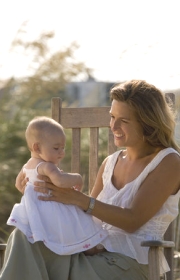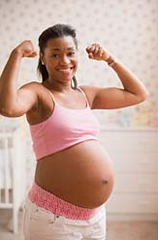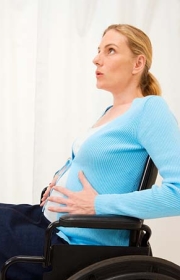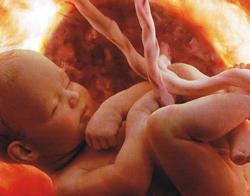Your Post Partum Body- Recovery and Loving It
 It’s a strange feeling – this new you. Now that the baby has arrived, you are indeed different. Your body is different, your hormones are all over the place and above all else, you’re now a mom. And it’s that mother role that occupies all your time, and even now, much of your body. It’s fairly common for some major hormone shifts to occur after birth, which can affect how you perceived yourself. So how do you re-establish that second part of the equation: the “old” you to mesh with motherhood?
It’s a strange feeling – this new you. Now that the baby has arrived, you are indeed different. Your body is different, your hormones are all over the place and above all else, you’re now a mom. And it’s that mother role that occupies all your time, and even now, much of your body. It’s fairly common for some major hormone shifts to occur after birth, which can affect how you perceived yourself. So how do you re-establish that second part of the equation: the “old” you to mesh with motherhood?
Indulge yourself
Although it’s not easy to get a new mom out of the house for some much-needed self love, it is very important that you do treat yourself. At first you may feel tremendously guilty for leaving your partner with the new baby, you just have to spend time on yourself. Make a hair appointment, get a pedicure, lunch at your favorite restaurant and do a little shopping for yourself. The need to start feeling feminine again is foremost on many new moms’ wish lists, and you should make every effort to do so.Re-establish your sense of self
Re-establishing your sense of self is not only a physical battle, but an emotional and mental one as well. To this end, you should arrange with your partner to have some quiet time and/or a little exercise a few times a week. Reconnecting with friends and co-workers while on maternity leave will help alleviate some of the loneliness while the rest of the world is seemingly working and caught up in the grind of the big city. Taking your child for long strolls out in the streets will also help you feel a part of the world, instead of separate from it.Take care of your body
Margaret Howard, Ph.D., is a clinical psychologist and director of the Postpartum Depression Day Program at Women and Infants’ Hospital in Providence, R.I., and a clinical assistant professor in the Brown University Department of Psychiatry and Human Behavior. She helps moms cope with the pressures of their changing lives, and helps them establish a balance between the roles of mother and woman. “Pregnancy, labor and delivery have a tremendous physical impact on a woman,” says Howard. “Giving the body plenty of time to recuperate is essential, which translates into getting as much rest as possible, by trying to sleep when the baby sleeps and letting someone else do the dishes, laundry, etc. Make sure to eat nutritious meals and snacks and drink plenty of fluids which is especially important for nursing moms.” Howard also recommends minimizing alcohol and caffeine intake and continuing to take prenatal vitamins. Among the first concerns of moms is getting back to their pre-pregnancy weight. But Howard advocates resuming exercise only when the doctor or midwife and your body give you the OK sign. “Above all, don’t push yourself and ease back into physical exercise slowly and gradually,” she says. “Starting with outdoor walks with the baby in the carriage is always a good thing to do. Do not expect to lose weight immediately and recognize that pushing yourself too hard to get back into your pre-pregnancy shape is not only unrealistic but also can be unhealthy. So go slowly and gradually and above all be patient!”Dealing with new emotions
But being patient is a challenge, especially when your emotions seem to belong to some other woman – one who is exhausted, moody and on edge. “A two-to three-week (postpartum) period of tearfulness, irritability, moodiness and emotional sensitivity is normal and common,” says Howard. “Seeking extra support, reassurance and education from family, friends, books, new moms groups and hospital health education programs can be very helpful. For the longer term, teaming up with other moms, both new and experienced, can be of tremendous benefit in navigating new motherhood. Talking and sharing feelings with others is also vital. If the feelings or emotions become overwhelming or interfere in day-to-day functioning and/or result in increased social isolation, then it’s time to seek a professional consultation.” “Taking on the role of mother is a huge transition and one that doesn’t happen automatically, no matter what the TV shows portray,” says Howard. “This is a role, or more accurately, an identity, that coalesces over time. After the initial postpartum weeks, it’s important for a new mom to begin to spend time away from the baby, go out with friends, to a bookstore, shopping, read books other than baby books, out for lunch or dinner … essentially anything or any activity that she used to engage in and enjoy pre-baby. Simultaneously, she can begin to include Baby in some of the outings.”Post Partum Body



